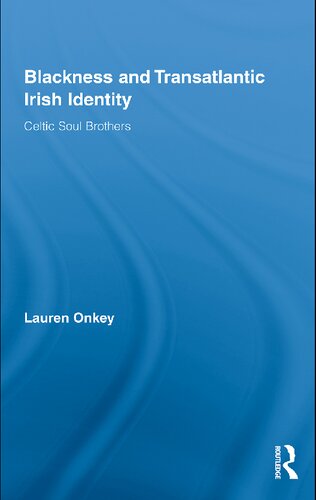

Most ebook files are in PDF format, so you can easily read them using various software such as Foxit Reader or directly on the Google Chrome browser.
Some ebook files are released by publishers in other formats such as .awz, .mobi, .epub, .fb2, etc. You may need to install specific software to read these formats on mobile/PC, such as Calibre.
Please read the tutorial at this link: https://ebookbell.com/faq
We offer FREE conversion to the popular formats you request; however, this may take some time. Therefore, right after payment, please email us, and we will try to provide the service as quickly as possible.
For some exceptional file formats or broken links (if any), please refrain from opening any disputes. Instead, email us first, and we will try to assist within a maximum of 6 hours.
EbookBell Team

4.0
36 reviewsBlackness and Transatlantic Irish Identity analyzes the long history of imagined and real relationships between the Irish and African-Americans since the mid-nineteenth century in popular culture and literature. Irish writers and political activists have often claimed - and thereby created - a "black" identity to explain their experience with colonialism in Ireland and revere African-Americans as a source of spiritual and sexual vitality. Irish-Americans often resisted this identification so as to make a place for themselves in the U.S. However, their representation of an Irish-American identity pivots on a distinction between Irish-Americans and African-Americans. Lauren Onkey argues that one of the most consistent tropes in the assertion of Irish and Irish-American identity is constructed through or against African-Americans, and she maps that trope in the work of writers Roddy Doyle, James Farrell, Bernard MacLaverty, John Boyle O’Reilly, and Jimmy Breslin; playwright Ned Harrigan; political activists Bernadette Devlin and Tom Hayden; and musicians Van Morrison, U2, and Black 47.